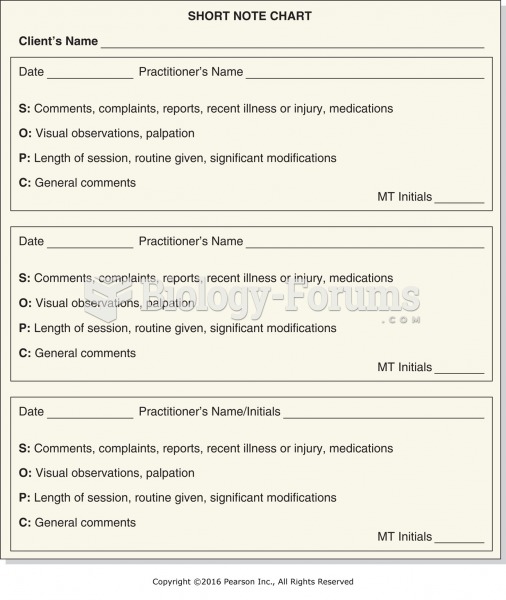|
|
|
By definition, when a medication is administered intravenously, its bioavailability is 100%.
Common abbreviations that cause medication errors include U (unit), mg (milligram), QD (every day), SC (subcutaneous), TIW (three times per week), D/C (discharge or discontinue), HS (at bedtime or "hours of sleep"), cc (cubic centimeters), and AU (each ear).
Approximately 25% of all reported medication errors result from some kind of name confusion.
Atropine, along with scopolamine and hyoscyamine, is found in the Datura stramonium plant, which gives hallucinogenic effects and is also known as locoweed.
All adverse reactions are commonly charted in red ink in the patient's record and usually are noted on the front of the chart. Failure to follow correct documentation procedures may result in malpractice lawsuits.
 Simple food web of an Arctic island. NOTE: The indication of detritivores and pathogens was not part
Simple food web of an Arctic island. NOTE: The indication of detritivores and pathogens was not part
 Female leopard in the Sabi Sands area of South Africa. Note the white spot on its tail, used for com
Female leopard in the Sabi Sands area of South Africa. Note the white spot on its tail, used for com
 (A) The name and shape of the adult teeth. These teeth represent those found in the right side of th
(A) The name and shape of the adult teeth. These teeth represent those found in the right side of th




